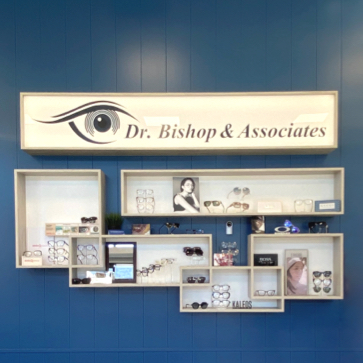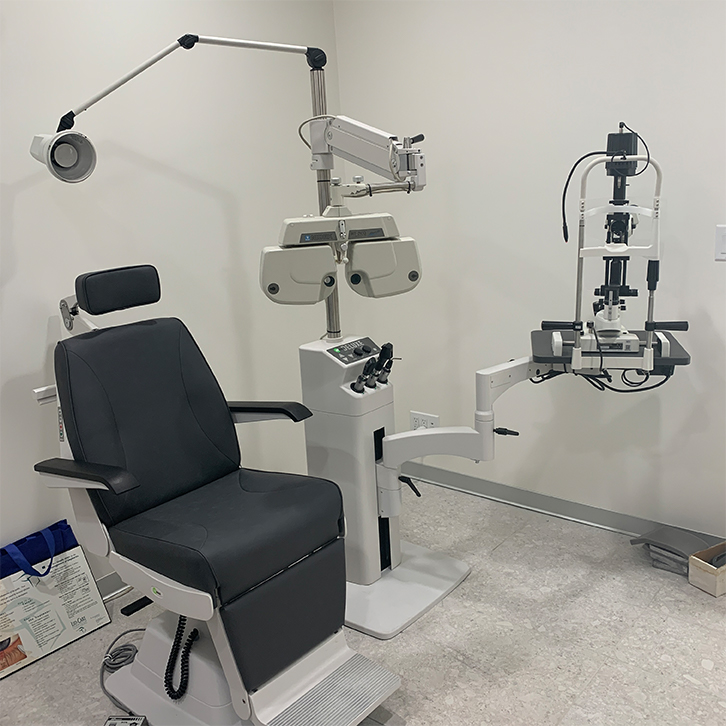Dry eyes are more than just an occasional annoyance. For those who suffer consistently from this condition, it can be a daily struggle affecting their quality of life.
Fortunately, various vitamins and supplements, such as vitamin A, vitamin B12, vitamin D, and omega-3 fatty acids, can help improve dry eye symptoms. When combined with home remedies like artificial tears, warm compresses, and lifestyle changes, individuals with dry eyes can find relief!
What Is Dry Eye?
Dry eye syndrome is a common eye condition that affects around 21% of Canadians. Dry eyes occur when the eyes don’t produce enough tears to keep them moisturized or when the tears evaporate too quickly.
Causes & Symptoms of Dry Eyes
Tears are essential for maintaining the health of the eye’s front surface and providing clear vision. When your eyes are not adequately lubricated, you may experience:
- Redness
- Blurry vision
- Light sensitivity
- A feeling of having something in your eyes
- A burning or stinging sensation
Common causes of dry eyes include:
- Aging: Tear production tends to decrease as you get older.
- Environmental factors: Wind, smoke, or dry air can exacerbate dry eyes.
- Screen time: Prolonged staring at screens can reduce blinking frequency, potentially leading to dry eyes.
- Medical conditions: Health conditions like diabetes, rheumatoid arthritis, and thyroid disorders can contribute to dry eyes.
- Medications: Certain medications like antihistamines can reduce tear production.
What Happens if Dry Eyes Remain Untreated?
While dry eyes may seem like a minor inconvenience, leaving dry eyes untreated can lead to serious ocular concerns. Chronic dry eyes can cause:
- Eye infections: Tears help protect the surface of the eyes from infections. Without adequate lubrication, you are more prone to infections.
- Damage to the eye’s surface: Severe dry eyes can damage the eyes’ surface, leading to inflammation, corneal ulcers, or vision loss.
- Decreased quality of life: Symptoms of dry eyes can include blurry vision and irritation, which can affect daily activities like working, driving, and using digital devices, impacting an individual’s overall quality of life.
Key Vitamins & Supplements for Eye Health
Several vitamins and supplements have been found to alleviate dry eye symptoms. They work by improving tear production and promoting overall ocular health.
Ideally, sources of these vitamins should be consumed through a balanced diet as it’s easier for the body to absorb these vitamins and minerals. Supplements are useful for filling any gaps in your diet.

Vitamin A
Vitamin A can maintain the health of the cornea. It also helps produce mucin, a component of tears that helps spread them evenly across the eye surface.
Sources of vitamin A include carrots, sweet potatoes, spinach, and liver. Vitamin A supplements can help those who have a deficiency, but it’s recommended to consult with your healthcare provider to find the right dosage suited for your health needs.
In addition to helping improve dry eyes, vitamin A can help prevent night blindness and reduce the risk of developing age-related macular degeneration.
Vitamin B12
Vitamin B12 is important for overall nerve function and may help reduce the symptoms of dry eyes by promoting healthy nerve function in the eyes.
Vitamin B12 deficiency can be associated with ocular pain. Consuming this vitamin can help reduce symptoms of burning associated with dry eyes.
Sources of vitamin B12 include meat, fish, poultry, dairy products, and fortified cereals. Vitamin B12 supplements are great for individuals who don’t consume meat and animal products as they may not get enough B12 from their diet.
Vitamin D
Vitamin D has anti-inflammatory properties that can help reduce eye inflammation, alleviating dry eye symptoms. Some studies have also suggested a link between vitamin D deficiency and dry eyes.
Sources of vitamin D include fatty fish (salmon, halibut, etc.) fortified milk, and sun exposure. Supplementing vitamin D can be beneficial during the winter when sun exposure is limited.
Additional ocular benefits of consuming vitamin D include reducing the risk of glaucoma and macular degeneration.
Omega-3 Fatty Acids
Omega-3 fatty acids, commonly found in fish oil, have anti-inflammatory properties that can help improve tear production and reduce the symptoms of dry eyes.
Sources of omega-3 fatty acids include fatty fish, flaxseed oil, chia seeds, spinach, and walnuts. Fish oil supplements can be a convenient way to make sure you’re getting enough omega-3s.
In addition to reducing dry eye symptoms, omega-3s can help reduce the risk of diabetic retinopathy and age-related macular degeneration.
At-Home Dry Eye Therapy
While vitamins and supplements can improve symptoms of dry eyes, incorporating these vitamins with other home remedies and lifestyle changes can provide additional relief. These include:
- Artificial tears: Over-the-counter artificial tears can provide immediate relief by adding moisture to the eyes. Look for preservative-free options for frequent use.
- Warm compress: Use a warm compress on your closed eyes and gently massage around the area for a few minutes to help unclog oil glands in your eyelids, improving tear production and reducing tear evaporation.
- Humidifier: Using a humidifier in your home can add moisture to the air, which can help prevent your eyes from drying out, especially during the winter months.
- Staying hydrated: Aim to drink 8 to 10 glasses of water throughout the day to promote overall hydration and help prevent dry eyes.
- Limiting screen time: Reducing screen time before bed can help reduce eye strain and dryness caused by prolonged use of digital devices.
Book an Appointment
Dry eyes are a frustrating eye condition, but they can be managed with the right approach. You can find relief from dry eyes by incorporating a balanced diet of vitamins and supplements along with at-home remedies.
Contact our Dr. Bishop & Associates team to schedule an appointment to learn about our dry eye therapy treatments.



















